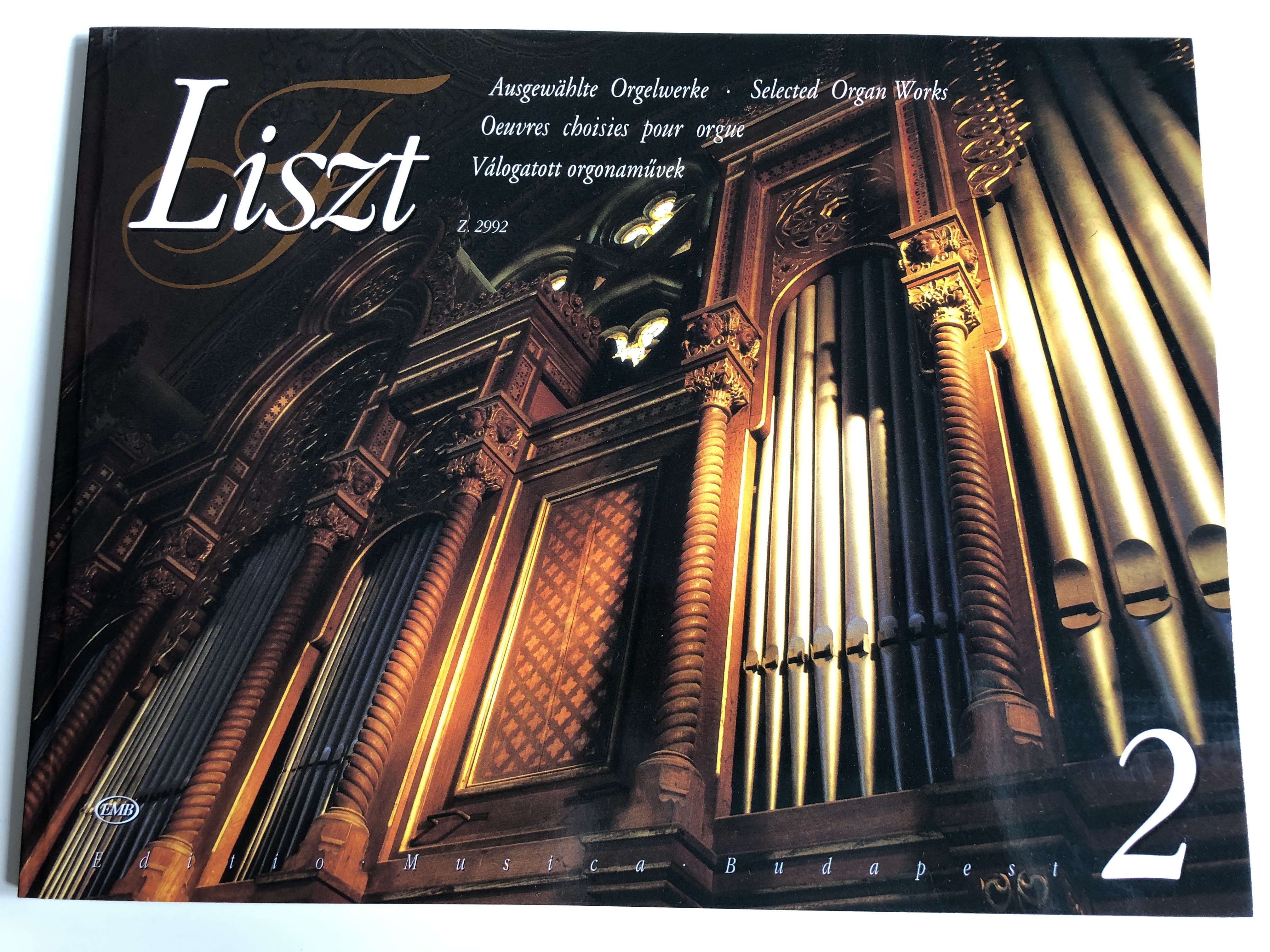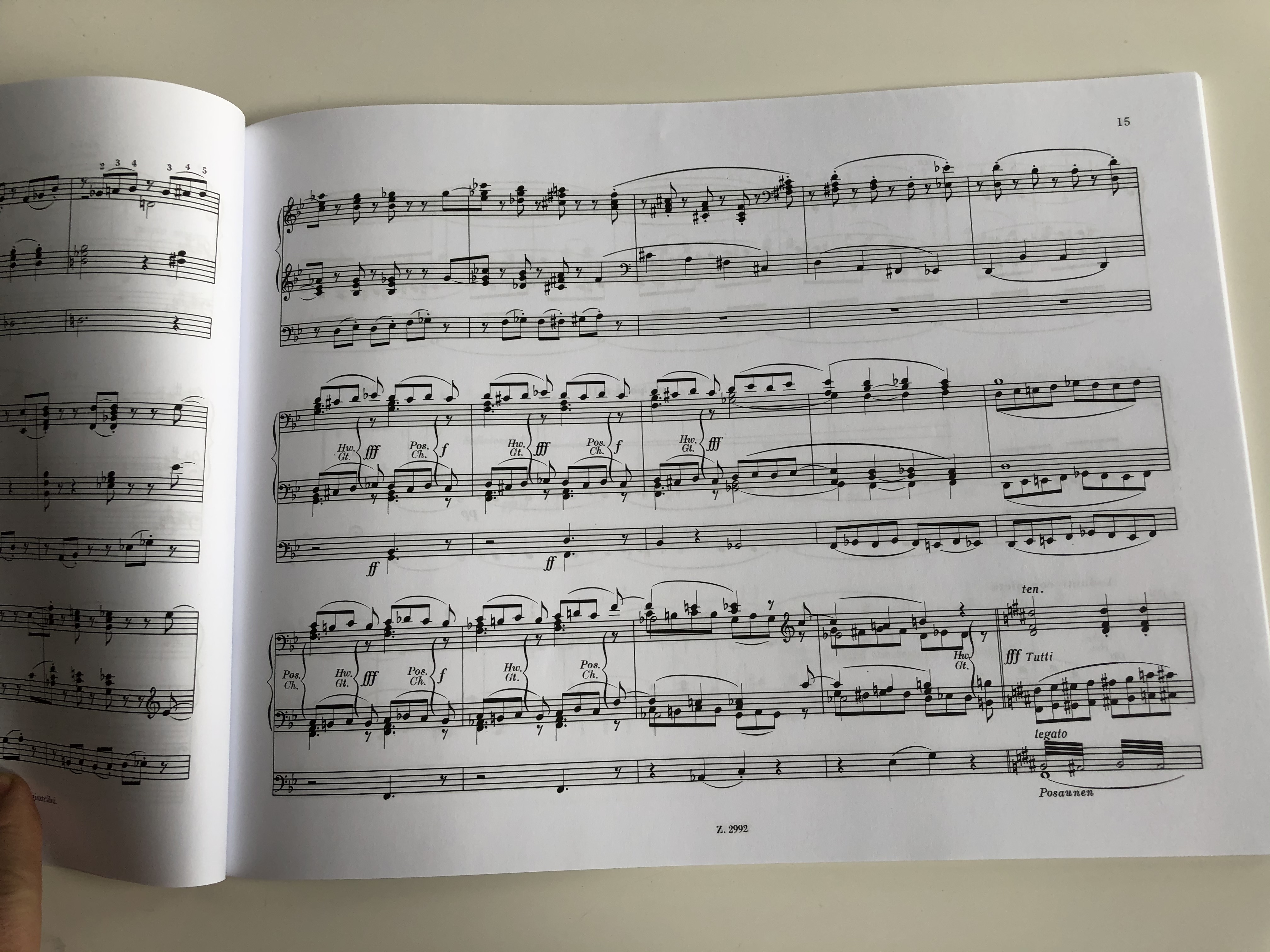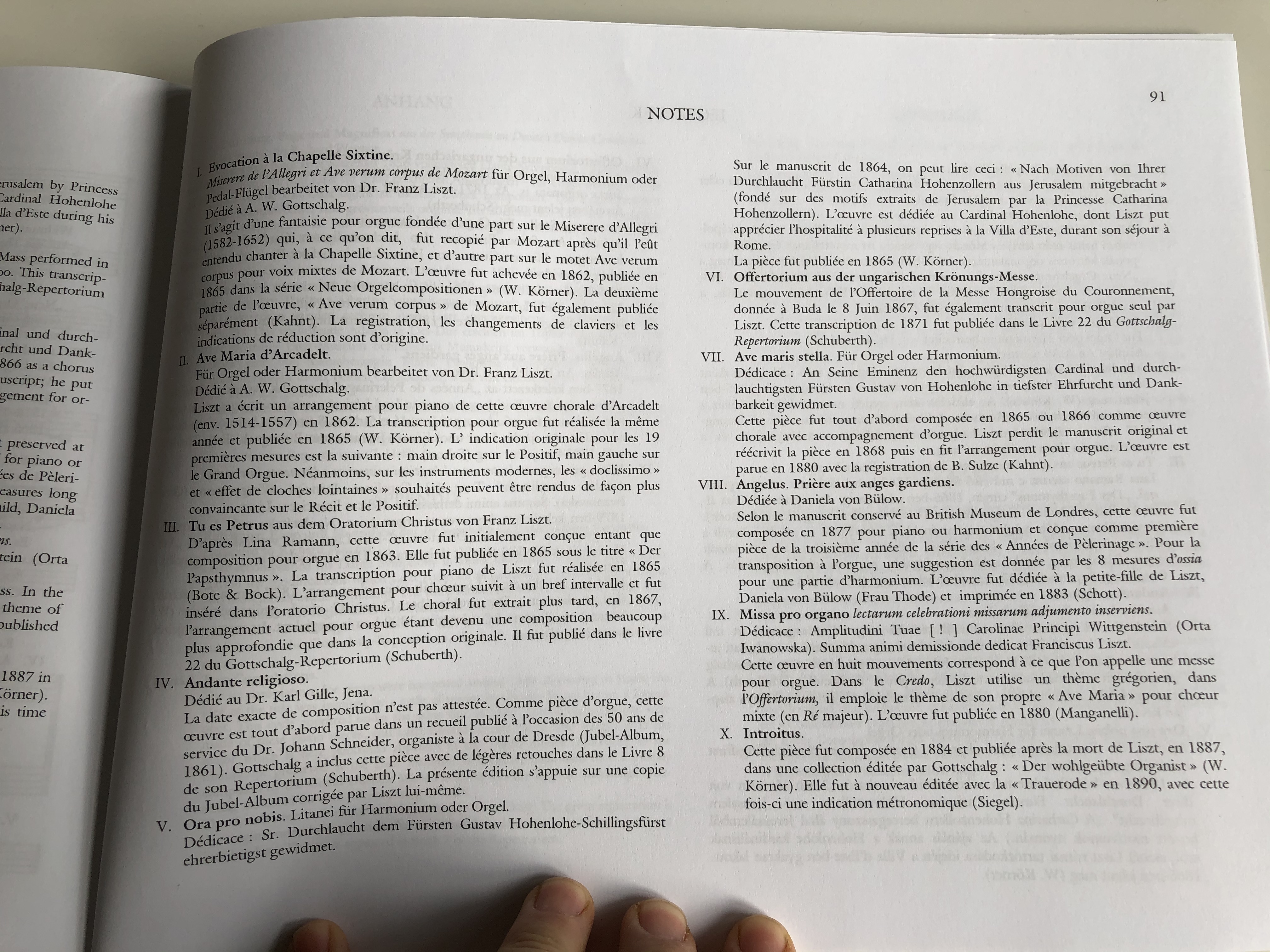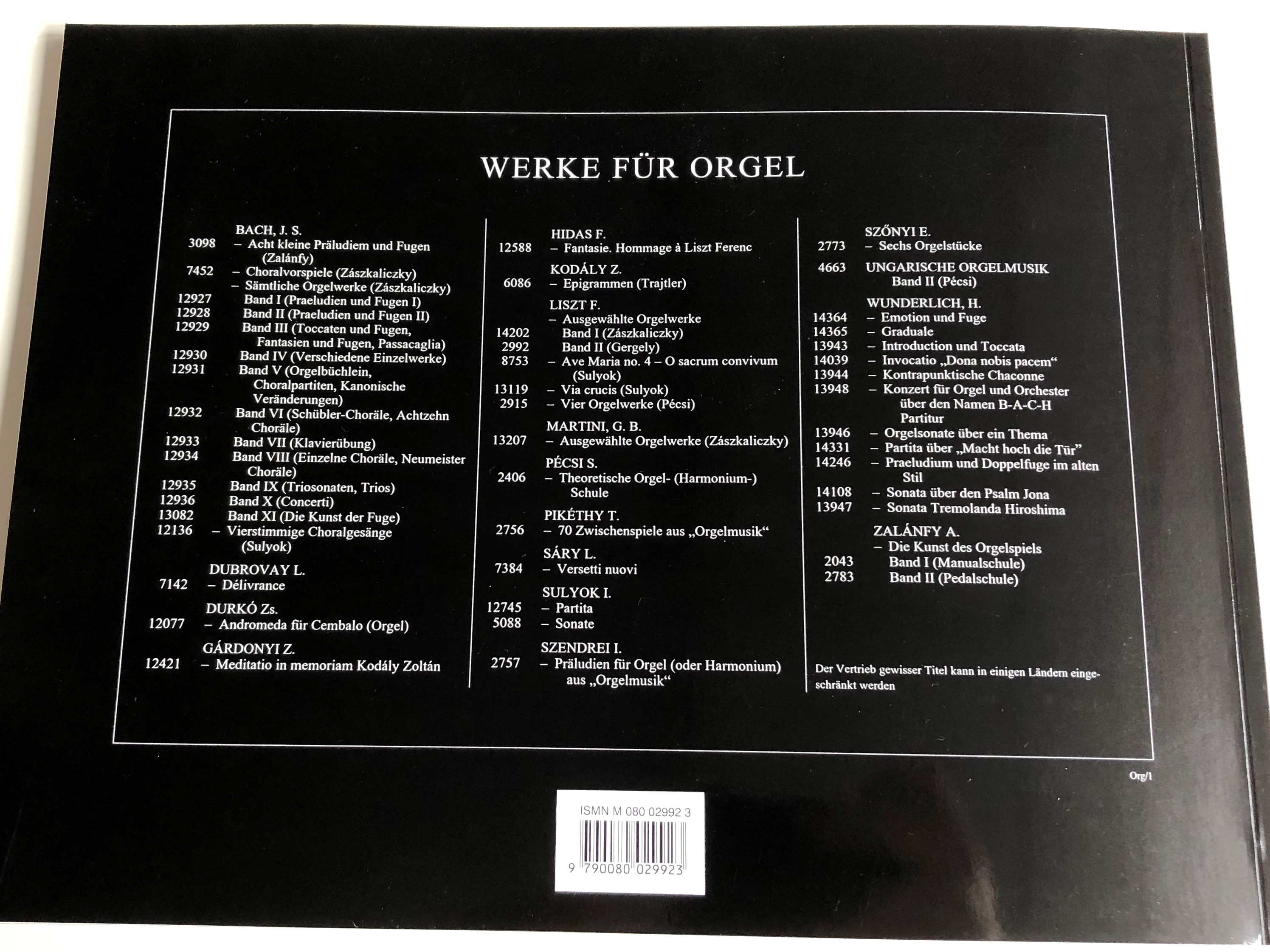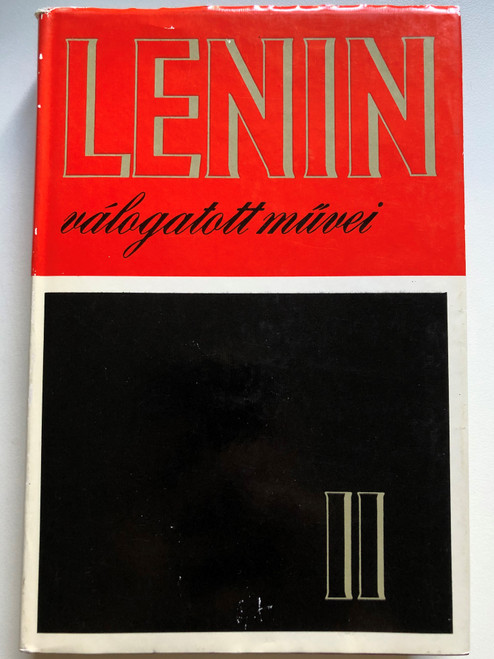Product Overview
Liszt - Selected Organ Works 2 - Válogatott orgonaművek 2. / Editio Musica Budapest 2004 - Z. 2992 / Based on the first editions edited by Gergely Ferenc / English - German - French - Hungarian notes
Paperback 2004
PAGES:
ISMN 9790080029923 / 979-0080029923
PUBLISHER: Editio Musica Budapest
LANGUAGE: Hungarian - English - German - French
Made in Hungary
Franz Liszt (German: [ˈlɪst]; Hungarian: Liszt Ferencz, in modern usage Liszt Ferenc [ˈlist ˈfɛrɛnt͡s]; 22 October 1811 – 31 July 1886) was a Hungarian composer, virtuoso pianist, conductor, music teacher, arranger, and organist of the Romantic era. He is widely regarded as one of the greatest pianists of all time. He was also a writer, philanthropist, Hungarian nationalist, and Franciscan tertiary.
Liszt gained renown in Europe during the early nineteenth century for his prodigious virtuosic skill as a pianist. He was a friend, musical promoter and benefactor to many composers of his time, including Frédéric Chopin, Charles-Valentin Alkan, Regina Watson, Richard Wagner, Hector Berlioz, Robert Schumann, Clara Schumann, Camille Saint-Saëns, Edvard Grieg, Ole Bull, Joachim Raff, Mikhail Glinka, and Alexander Borodin.
A prolific composer, Liszt was one of the most prominent representatives of the New German School (German: Neudeutsche Schule). He left behind an extensive and diverse body of work which influenced his forward-looking contemporaries and anticipated 20th-century ideas and trends. Among Liszt's musical contributions were the symphonic poem, developing thematic transformation as part of his experiments in musical form, and radical innovations in harmonyLiszt Ferenc (németül Franz Liszt; Doborján, 1811. október 22. – Bayreuth, 1886. július 31.) magyar zeneszerző, zongoraművész, karmester és zenetanár. Minden idők egyik legkiválóbb zongoraművésze, aki egyben a 19. századi romantika egyik legjelentősebb zeneszerzője.
Apja, Liszt Ádám, Esterházy herceg hivatalnoka, korán felismerte fiának kivételes zenei tehetségét, és minden lehetőséget megragadott kibontakoztatására. Liszt kilencéves korában már nyilvánosság előtt zongorázott Sopronban és Pozsonyban, majd hamarosan műpártoló főurak támogatásával Bécsben folytathatta tanulmányait Czerny és Salieri tanítványaként. 1822. december 1-jén mutatkozott be Bécsben. A 11 éves Liszt első koncertje nagy feltűnést keltett. Itt találkozott Beethovennel, Czerny közvetítésével, aki korábban Beethoven tanítványa volt.[2] Itt is jelent meg nyomtatásban első műve, variációi ugyanarra a Diabelli-témára (keringőre), amelyekre Beethoven híres zongoraművét írta. Az ifjú Liszt bécsi szereplését követően négy nagy sikerű pesti, illetve budai koncertje után 1823 őszén apjával Franciaországba utazott, és az európai művészeti élet egyik központjába, Párizsba költözött.
Contents / Tartalom:
| 1. |
Liszt Ferenc: Evocation á la Chapelle Sixtine
|
|
|
| 2. |
Liszt Ferenc: Ave Maria (von Arcadelt)
|
||
| 3. |
Liszt Ferenc: Tu es Petrus
|
||
| 4. |
Liszt Ferenc: Andante religioso
|
||
| 5. |
Liszt Ferenc: Ora pro nobis
|
||
| 6. |
Liszt Ferenc: Offertorium (aus der ungarischen Krönungs-Messe)
|
||
| 7. |
Liszt Ferenc: Ave Maris Stella
|
||
| 8. |
Liszt Ferenc: Angelus (Priére aux Anges Gardiens)
|
||
| 9. |
Liszt Ferenc: Missa pro organo
|
||
| 10. |
Liszt Ferenc: Introitus
|
||
| 11. |
Liszt Ferenc: Einleitung. Fuge und Magnificat
|
||
| 12. |
Liszt Ferenc: Consolation
no. 4
|
||
| 13. |
Liszt Ferenc: Consolation
no. 5
|















